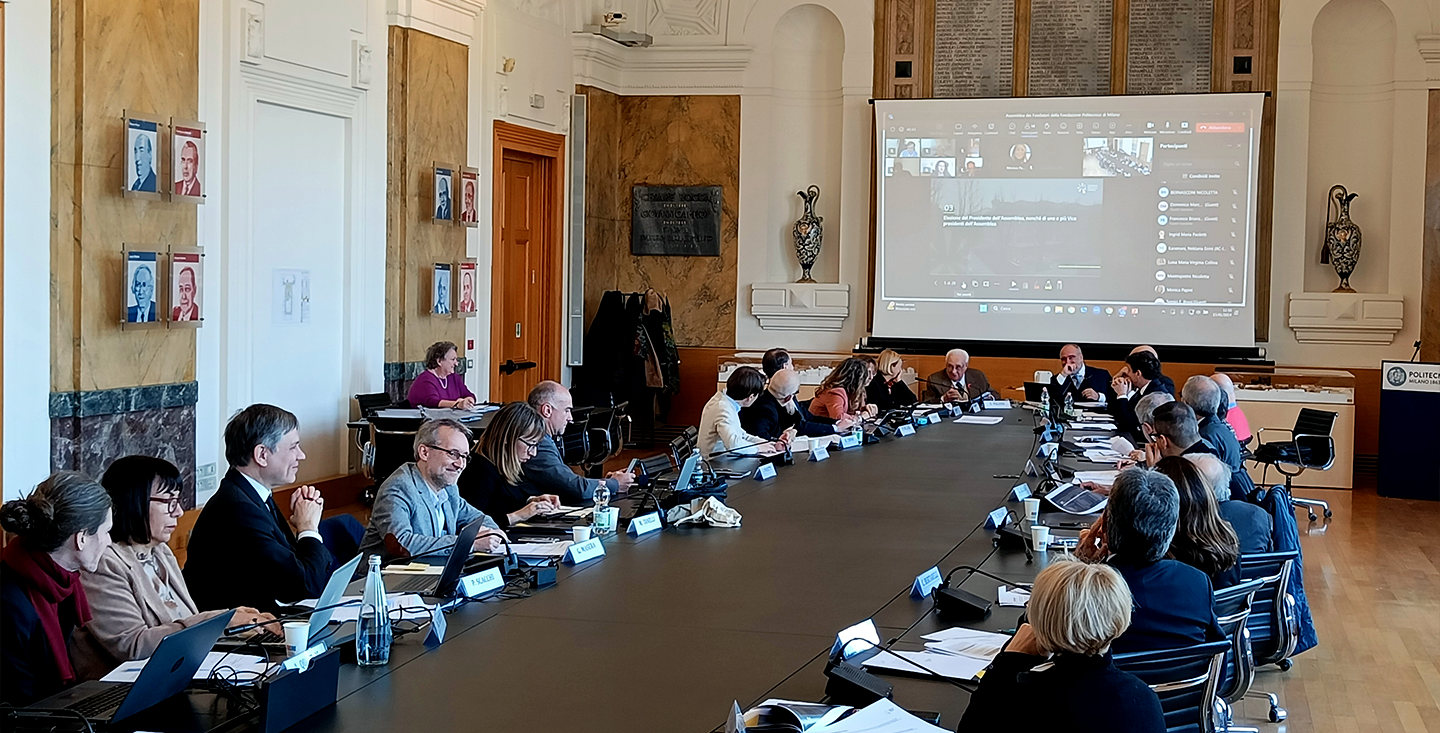In 2019, the first Gender Budgeting (or "Gender Budget") was drawn up, a document drawn up by the Politecnico di Milano to analyze the situation within the University regarding gender equality issues, and equality in general. The text also discussed future measures to improve the allocation of the University's resources, according to a gender-free environment, as well as a general inclusion policy both at student and faculty level.
However, the debate on gender equality does not only involve the Polytechnic, but in Italy and europe in the last decade it has become a central objective (especially in the university and work environment). In fact, despite the fact that equity is enshrined in the Italian Constitution, in the various European directives and national legislation, there are still strong inequalities at all levels, especially in the highest professional groups where women suffer the phenomenon of vertical segregation.
The Student Component
The percentage of female presence at the Politecnico di Milano is undoubtedly low, although on average with data at national level. In recent years, however, enrolment rates have seen a clear improvement especially in the Engineering area where it has gone from 26% (2001) to 31% (2018) in the three-year period, and from 33% to 38% in the master's degree. At the European level, the data remains in line with IdeaLeague's international partners. It is also important to note that in the Architecture and Design sections the percentage of women is stably higher than in the male counterparts, in 2018 respectively of 57.84% and 60.97%, a symptom that within the university gender equality proceeds at two different speeds.
A relatively significant figure is the rate of abandonment of studies, for the three-year degree of Engineering 25.6% for women against 35.8% of men; this comparison could suggest that female students determined to fit into a predominantly male study context demonstrate greater perseverance in their teaching career.
Despite these findings, in a questionnaire submitted to engineering graduates, it emerged that the percentage of those who have a permanent contract is higher among men (41.19%) than women (24.08%). A difference of more than 16 percentage points, statistically significant, indicating that female graduates have greater difficulty in reaching a stable job position than their male colleagues.
Although the disparity in the technological and engineering world is therefore evident, in the short term in addition to the actions of individual institutes it is important to spread new cultural models that encourage female access to these university paths, and thus overcome the distrust of girls and women in this regard.
The Teaching Staff
In the Teaching Staff of the University, as for students, an increase in female attendance has been observed in recent years, despite the fact that the percentages remain lower than their male counterparts. At the beginning of 2019, there were a total of 1,403 professors at the Polytechnic: 403 women and 1,000 men (28.7% and 71.2% respectively).
These values turn significantly as the level of career considered increases, with only 21.6% (2018) of full professors, a figure that is still up considerably compared to 13.9% in 2000. In the services provided to students, it is the employees who prevail in number over their male colleagues.
In two departments of the University, however, the percentage of full professors is comparable to male colleagues: "Design" and "Architecture and Urban Studies" (while the average is maintained in seven out of twelve departments, above 30%). Eleven of the Department Directors are also men, with the only woman directing the Design Department.
It is therefore logical to observe that in the educational areas where women are more numerous, it is easier for them to make a career. The percentages remain, in any case, in line with foreign data.
Technical and Administrative Staff
A different situation is that of the PTA of the Politecnico di Milano, divided between the structures of Milan and the various Territorial Poles, where at the beginning of 2019 women constituted 59.37% with a total of 732 out of 1,233 hired. Although this is positive, the presence of women is concentrated mainly in the areas of personal management and communication, while the strictly technical and laboratory assignments are predominantly male. This difference would seem to suggest, as already highlighted above, the effect of vertical segregation and therefore a greater difficulty of women to access the highest positions.
In addition, there are many more absences among employees (75.14%) than their colleagues (41.68%). The main motivation for such leave and leave is "family reasons", in line with the traditional female role of home care and family care.
To counter this phenomenon, in 2018 the University launched an experimental "Smart Working" project aimed at improving spatial flexibility (reducing the tasks tied to a single place or location) and working hours, with a view to ensuring gender equity in the possibility of carrying out one's task and progressing in the career, as well as enhancing the skills of the individual worker.
Actions in support of equal opportunities
In 2018, the Rectorate of the Politecnico di Milano launched the "POP" (Equal Opportunities Politecniche) program, which held its first annual event on 18 June last year. The goal of POP is to support initiatives aimed at creating a study and work environment that respects and enhances gender identities (the specific purpose of Gender POP), orientation, culture and origin.
In 2018, among the numerous actions promoted by the University, 20 scholarships were donated to high school students, to allow them to attend the TechCamp@Polimi. The Polytechnic has also guaranteed a contribution of € 15,000 for four researchers returning from maternity in addition to covering the nursery fees of the Polytechnic (active both in the Leonardo Campus and in that of Bovisa), in favor of five Doctoral students who have become mothers.
Also in 2018, an interdepartmental scholarship was awarded, based on issues of gender prejudice.
Although the road to effective gender equality is still long and not without obstacles, the issue is particularly dear to the Polytechnic, which aims in the next versions of the Budgeting Gender to deepen the situation of international students, as well as in general to promote policies that can bring more and more girls closer to the Technical Scientific degrees and guarantee its collaborators effective support to reconcile family and professional growth the.
Tecla Trifilò, student representative on the Board of Directors
tecla.trifilò@svoltastudenti.it
Marco Airoldi and Alessio Rocca student representatives in the Academic Senate
marco.airoldi@svoltastudenti.it alessio.rocca@svoltastudenti.it




